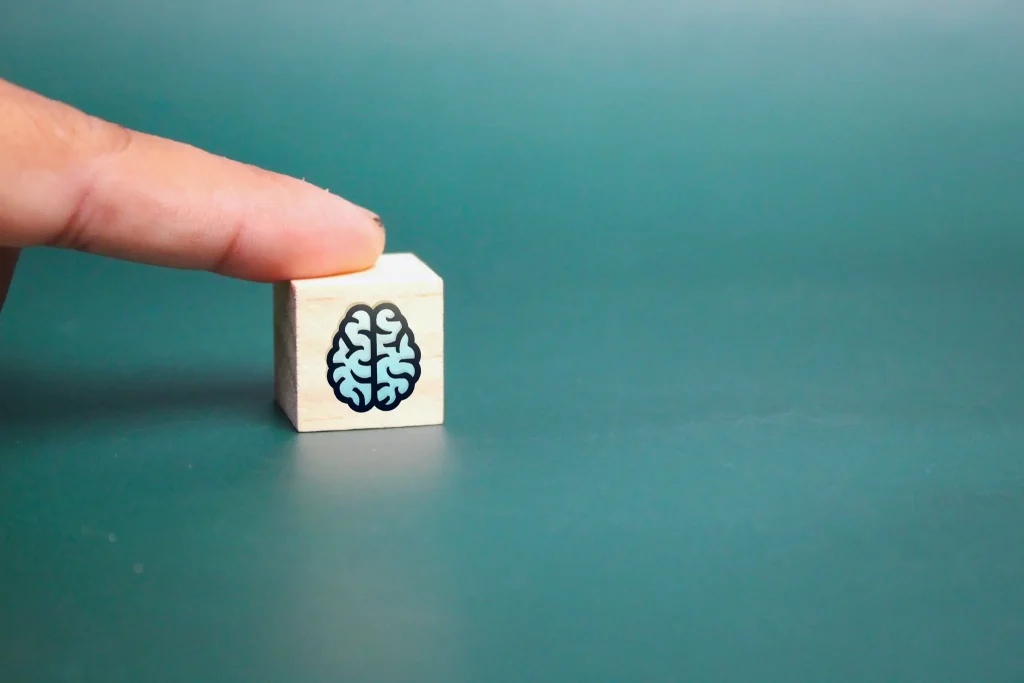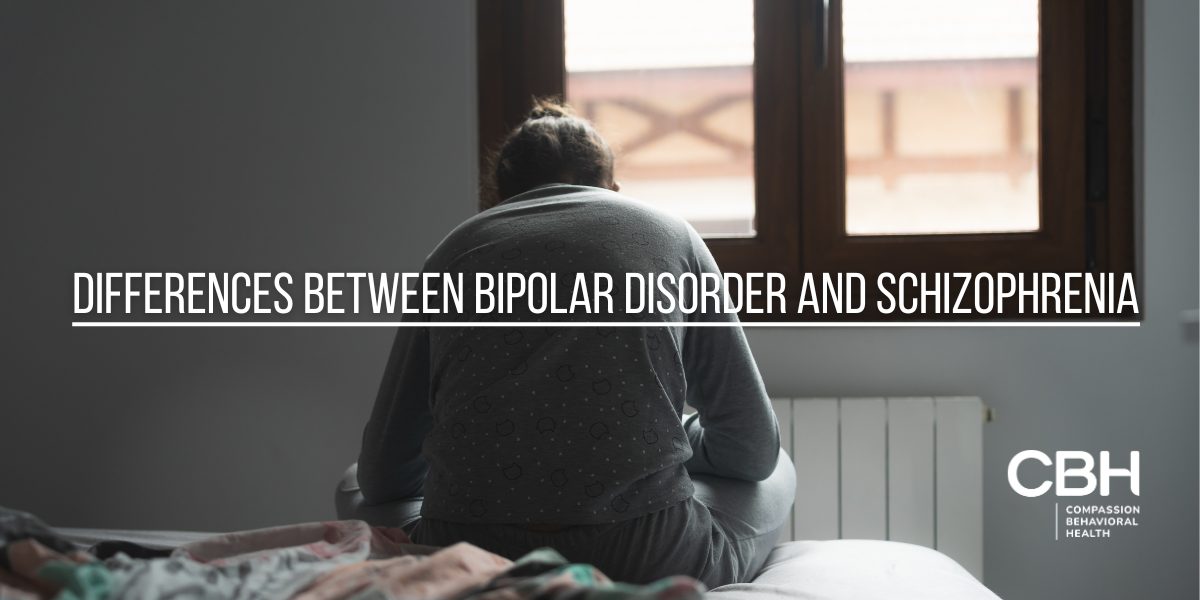Obsessive-Compulsive Disorder (OCD) is a mental health condition that affects millions of individuals worldwide. It is characterized by a cycle of obsessions, which are intrusive and unwanted thoughts, and compulsions, which are repetitive behaviors or mental acts that individuals feel the need to perform to alleviate anxiety or distress. Understanding OCD triggers and learning how to manage them is crucial for individuals with OCD to live a fulfilling and balanced life.
Defining Obsessive-Compulsive Disorder (OCD)
Firstly, to grasp the concept of OCD triggers, we must understand the disorder itself. OCD is a chronic condition that can significantly impact an individual’s daily functioning and overall quality of life. It goes beyond typical perfectionism or cleanliness and is usually accompanied by irrational thoughts and intense anxiety.
Obsessive-Compulsive Disorder, commonly known as OCD, is a mental health disorder characterized by the presence of obsessions and compulsions. Obsessions are intrusive and unwanted thoughts, images, or urges that cause significant distress. Compulsions, on the other hand, are repetitive behaviors or mental acts that individuals feel driven to perform in response to their obsessions. These compulsions are often aimed at reducing anxiety or preventing a feared event from occurring.
The Psychology Behind OCD
OCD is believed to be a result of a combination of genetic, environmental, and neurobiological factors. The brain regions involved in decision-making and fear regulation, such as the orbitofrontal cortex and the basal ganglia, seem to be affected in individuals with OCD. Additionally, serotonin, a neurotransmitter that plays a role in mood regulation, has been implicated in the development and maintenance of OCD.
Research suggests that individuals with OCD have abnormalities in their brain circuitry, particularly in the areas responsible for processing fear and anxiety. This dysfunction leads to an imbalance in the brain’s neurotransmitters, affecting the individual’s ability to regulate their thoughts and behaviors effectively. Furthermore, studies have shown that there may be a genetic predisposition to OCD, with certain genes being linked to an increased risk of developing the disorder.
Additionally, there is a notable relationship between OCD and trauma; traumatic experiences can exacerbate or even trigger the onset of OCD symptoms, creating a complex interplay that requires careful and compassionate OCD treatment.
Common Symptoms and Signs of OCD
Symptoms of OCD can manifest in a variety of ways, but the most common themes involve contamination, doubts and fears, order and symmetry, and intrusive thoughts or images. These symptoms can be distressing and time-consuming, often interfering with daily activities and relationships.
Contamination obsessions revolve around a fear of germs, dirt, or illness. Individuals with this subtype of OCD may engage in excessive handwashing, avoiding public places, or constantly cleaning their surroundings to alleviate their anxiety. Doubts and fears obsessions, on the other hand, involve persistent doubts and uncertainties about everyday situations, such as whether they locked the door or turned off the stove. This can lead to repetitive checking behaviors to ensure that nothing bad will happen.
Order and symmetry obsessions are characterized by a need for things to be arranged in a specific way or to have everything balanced. Individuals with this subtype may spend excessive amounts of time arranging objects, organizing their belongings, or feeling distressed when things are not in perfect order. Intrusive thoughts or images can be particularly distressing, as they involve unwanted and disturbing thoughts that go against the individual’s values or beliefs. These thoughts can be violent, sexual, or blasphemous in nature, causing significant distress and shame.
It is important to note that OCD is a highly individualized disorder, and symptoms can vary greatly from person to person. Some individuals may experience multiple subtypes of obsessions such as contamination OCD and false memory OCD , and compulsions, while others may have a predominant theme that dominates their OCD symptoms. Regardless of the specific symptoms, OCD can have a profound impact on an individual’s daily life, causing distress, impairing functioning, and affecting their overall well-being.
Identifying OCD Triggers
Identifying triggers is a crucial step in managing OCD effectively. Triggers are specific situations, stimuli, or thoughts that elicit obsessive thoughts and subsequently trigger compulsive behaviors. By recognizing and understanding these triggers, individuals can develop strategies to minimize their impact.
Understanding the different types of triggers can provide valuable insights into the complex nature of OCD. Triggers can be categorized into three main types: environmental triggers, emotional triggers, and physical triggers.
Environmental Triggers
Environmental triggers refer to external factors that can provoke obsessive thoughts in individuals with OCD. These triggers can vary greatly from person to person, as OCD is a highly individualized disorder. Examples of environmental triggers may include encountering dirt or germs, encountering certain numbers or patterns, or visiting specific places that are associated with distressing memories.
For instance, someone with contamination OCD may experience a trigger when they come into contact with a dirty surface. This trigger can lead to obsessive thoughts about germs and subsequently trigger compulsive behaviors such as excessive handwashing or avoiding certain places altogether.
It is important to be aware of these triggers and take steps to minimize their occurrence or create a more controlled environment. This may involve practicing good hygiene, implementing organizational strategies to reduce exposure to triggering stimuli, or seeking professional help to develop effective coping mechanisms.
Emotional Triggers
Emotional triggers are internal factors that can intensify obsessive thoughts, leading to compulsive behaviors. Stress, anxiety, or certain emotions such as guilt or anger can act as potent triggers for individuals with OCD. These triggers can be particularly challenging to manage, as they are often deeply rooted in personal experiences and psychological factors.
For example, someone with OCD may experience an emotional trigger when they feel overwhelmed by stress. This trigger can amplify their obsessive thoughts and compel them to engage in repetitive behaviors as a way to alleviate their anxiety.
Developing healthy coping mechanisms is crucial in managing emotional triggers effectively. This may involve engaging in relaxation techniques such as deep breathing exercises, practicing mindfulness, or seeking therapy to address underlying emotional issues. By learning to recognize and regulate their emotions, individuals with OCD can gain better control over their triggers and reduce the impact on their daily lives.
Physical Triggers
Physical triggers involve bodily sensations that activate obsessive thoughts and compulsive behaviors. These triggers can be related to sensory experiences, such as feeling a certain texture, experiencing a specific smell, or engaging in repetitive movements. They can be particularly distressing for individuals with OCD, as they create a strong urge to perform certain rituals or behaviors.
For instance, someone with symmetry OCD may experience a physical trigger when they see an asymmetrical object. This trigger can lead to obsessive thoughts about imbalance and compel them to engage in compulsive behaviors such as arranging objects symmetrically.
Recognizing these triggers and implementing techniques to manage them is essential in managing OCD symptoms. Techniques such as shifting focus to a different sensory experience, practicing relaxation exercises, or seeking occupational therapy can help individuals with OCD navigate their physical triggers more effectively.
In conclusion, identifying OCD triggers is a crucial step in managing the disorder. By recognizing and understanding environmental, emotional, and physical triggers, individuals can develop strategies to minimize their impact and regain control over their lives. It is important to remember that everyone’s triggers may vary, and seeking professional help can provide personalized guidance and support in managing OCD effectively.
The Impact of OCD Triggers on Daily Life
OCD triggers can significantly impact various aspects of an individual’s life, including personal relationships and professional settings.
OCD, or Obsessive-Compulsive Disorder, is a mental health condition characterized by recurring thoughts (obsessions) and repetitive behaviors (compulsions) that individuals feel compelled to perform. These triggers can be anything from specific objects or situations to certain thoughts or feelings. While everyone experiences triggers differently, they can have a profound impact on daily life.
OCD Triggers in Personal Relationships
When OCD triggers arise in personal relationships, they can disrupt the dynamics and create strain between individuals, particularly if the partner or family members do not fully understand the condition. The constant need for reassurance or the compulsion to engage in repetitive behaviors can be confusing and frustrating for loved ones.
Open communication is key in navigating these challenges. By discussing triggers and the impact they have on daily life, individuals with OCD can help their loved ones gain a better understanding of the condition. Education about OCD, its symptoms, and treatment options can also be beneficial for family members and partners. Additionally, involving loved ones in the treatment process, such as attending therapy sessions together, can foster a supportive environment and strengthen relationships.
It is important to note that supporting someone with OCD does not mean enabling their compulsions. Loved ones should encourage healthy coping mechanisms and provide emotional support without participating in or reinforcing the rituals associated with OCD.
OCD Triggers in Professional Settings
OCD triggers in professional settings can pose unique challenges for individuals. The fear of making mistakes or the need for excessive organization can be debilitating, affecting job performance and career advancement.
Individuals with OCD may find themselves spending an excessive amount of time double-checking their work, seeking reassurance from colleagues or supervisors, or feeling overwhelmed by the need for perfection. These behaviors can lead to increased stress and decreased productivity.
Employers and colleagues can play a crucial role in supporting individuals with OCD in the workplace. By providing reasonable accommodations, such as flexible deadlines or modified workspaces, employers can help alleviate some of the pressure associated with OCD triggers. Creating a nonjudgmental work environment where employees feel comfortable discussing their condition and seeking support is also essential.
Furthermore, organizations can implement policies and initiatives that promote mental health awareness and provide resources for employees with OCD. This can include offering employee assistance programs, providing training on mental health, and fostering a culture of understanding and acceptance.
Individuals with OCD need to advocate for themselves in the workplace and communicate their needs to their supervisors and colleagues. By doing so, they can work towards creating a work environment that supports their well-being and allows them to thrive professionally.
Techniques for Managing OCD Triggers
Fortunately, there are various techniques available to help individuals manage OCD triggers effectively. These can be used in conjunction with therapy or as standalone interventions.
Cognitive Behavioral Therapy (CBT) for OCD
Cognitive Behavioral Therapy (CBT) is a widely recognized and evidence-based treatment approach for OCD. It involves identifying and challenging irrational thoughts, working towards developing healthier beliefs, and gradually exposing oneself to triggers while resisting the urge to perform compulsive behaviors. CBT can help individuals reframe their thinking patterns and develop effective coping strategies.
Mindfulness and Relaxation Techniques
Mindfulness practices, such as meditation and deep breathing exercises, can be beneficial in managing OCD triggers. These techniques promote relaxation and help individuals detach from obsessive thoughts, reducing their intensity and the subsequent need for compulsive behaviors. Incorporating mindfulness into daily routines can provide individuals with a sense of calm and control.
Medication and OCD Management
Medication can be prescribed to individuals with OCD, particularly if symptoms are severe or significantly impacting their quality of life. Selective Serotonin Reuptake Inhibitors (SSRIs) are commonly used medications that can help reduce obsessive thoughts and alleviate anxiety. It is essential to consult with a healthcare professional to determine the most appropriate medication and dosage for each individual.
Building a Support System for OCD Management
Creating a strong support system is crucial for individuals with OCD. Having understanding and supportive friends, family members, and professionals can make a significant difference in managing triggers effectively.
The Role of Friends and Family
Families and friends can provide a crucial support network for individuals with OCD. Educating themselves about the disorder, attending therapy sessions together, and practicing patience and empathy can greatly aid the healing process. Providing reassurance without enabling compulsive behaviors is key to promoting long-term recovery.
Seeking Professional Help
Finally, seeking professional help is vital in understanding and managing OCD triggers. Qualified therapists specializing in OCD can guide individuals through evidence-based OCD treatment options and provide support throughout the recovery process. Therapists can help identify triggers, develop coping strategies, and monitor progress, ensuring the most effective management of OCD triggers.
Understanding OCD triggers and learning how to manage them is crucial for individuals with OCD to live a fulfilling and well-balanced life. By defining OCD, identifying triggers, understanding their impact, and implementing effective techniques, individuals with OCD can gain control over their symptoms and minimize their disruption in daily life. Building a strong support system and seeking professional help further enhance the management of OCD triggers. Remember, recovery is possible, and with the right strategies and support, individuals can regain control and thrive.
At Compassion Behavioral Health, a multidisciplinary team of mental health professionals, including psychologists, psychiatrists, and occupational therapists, work collaboratively to develop individualized treatment plans. Their goal is not only to reduce the symptoms of OCD but also to enhance the overall quality of life for their clients by teaching them how to build resilience against their triggers and establish a sustainable routine.













